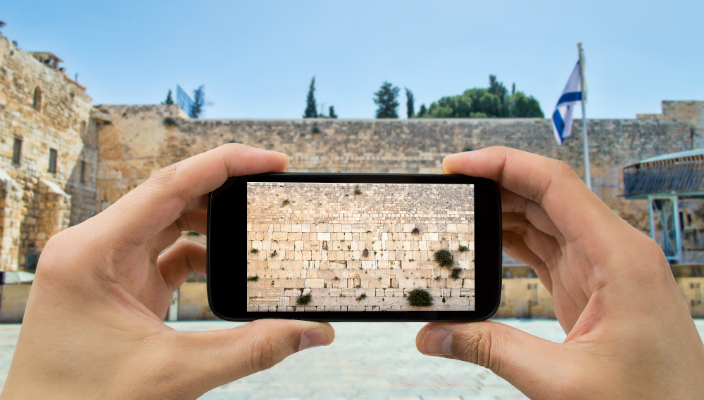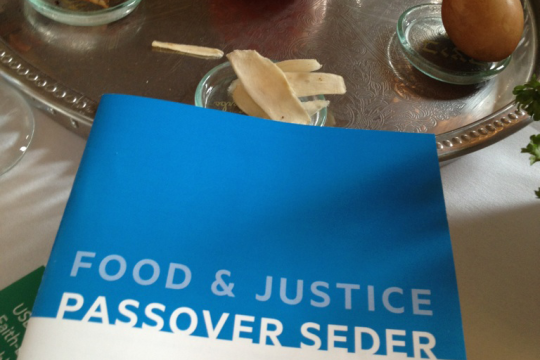
Greetings from URJ Kutz Camp where I am serving on faculty this week. Even in this bucolic setting, the loud cries from and about Israel are stirring conversation and action. Because this URJ community cares about Israel as a place welcoming to all Jews, the concerns expressed by participants and staff come from a place of commitment to Israel and its future.
A few nights ago, the teen leadership here produced a program they called Israel Assembly. It succeeded to both touch the soul and delve into issues of complexity. This idea of soulful complexity is stirring around in my head – I think it is a good way to capture our aspirations for Israel engagement throughout the work we do with youth across the URJ. In this spirit, and in the hopes that you agree, I’m sharing some ideas from the initiative here. We’ve created and curated resources that we think will be enormously helpful in creating educational programming around the complex religious pluralism issues that have heated up recently in Israel. We know that these issues won’t be going away – we imagine that it will still be timely and urgent to address religious pluralism in Israel well into the fall.
In the Tent, we’ve shared a few resources to support educational programming for children and teens around religious pluralism in Israel:
- Background About the Kotel: A document prepared by Rabbi Reuven Greenvald, Director of Israel Engagement for the URJ, that outlines general Kotel history and the recent events leading up to today’s controversy, as well as a glossary and relevant photos. Find it in the Tent.
- ARZA Talking Points: This PDF, which can be found in the Tent, can be used to explain positions and as a resource for action ideas. We thank Rabbi Josh Weinberg, ARZA President, for making available this informational guide from the Association of Reform Zionists of America (ARZA). ARZA’s social media is also a great source for up-to-date resources for events as they unfold.
- Opinion Piece: HUC-JIR Rabbinical Student Rena Singer wrote an opinion piece in Ha’aretz which may spark interesting conversations: “To Simone Zimmerman: Reform Jews Must Choose the Wall or Palestinians? That’s Wrong and Insulting.”
- Watch: Rabbi Rick Jacobs explains the historic Western Wall agreement.
- Watch: Anat Hoffman, executive director of the Israel Religious Action Center (IRAC), and Rabbi Rick Jacobs visit the Western Wall together to discuss equality
- Evolution of Religion and State in Israel: This Eeducational Cartoon video from the Israel Democracy Institute explains the evolution of religion and state in Israel. It’s an excellent vehicle for conveying this complex history in a brief and engaging way.
Please share the programming you do in The Tent group so that we can all learn from each other.
Access these resources in the Tent
Have something to say about this post? Join the conversation in The Tent, the social network for congregational leaders of the Reform Movement. You can also tweet us or tell us how you feel on Facebook.
Related Posts

Passover 2024: The Three Central Messages of Pesach

Modern-Day Plagues of Injustice and Inequality

